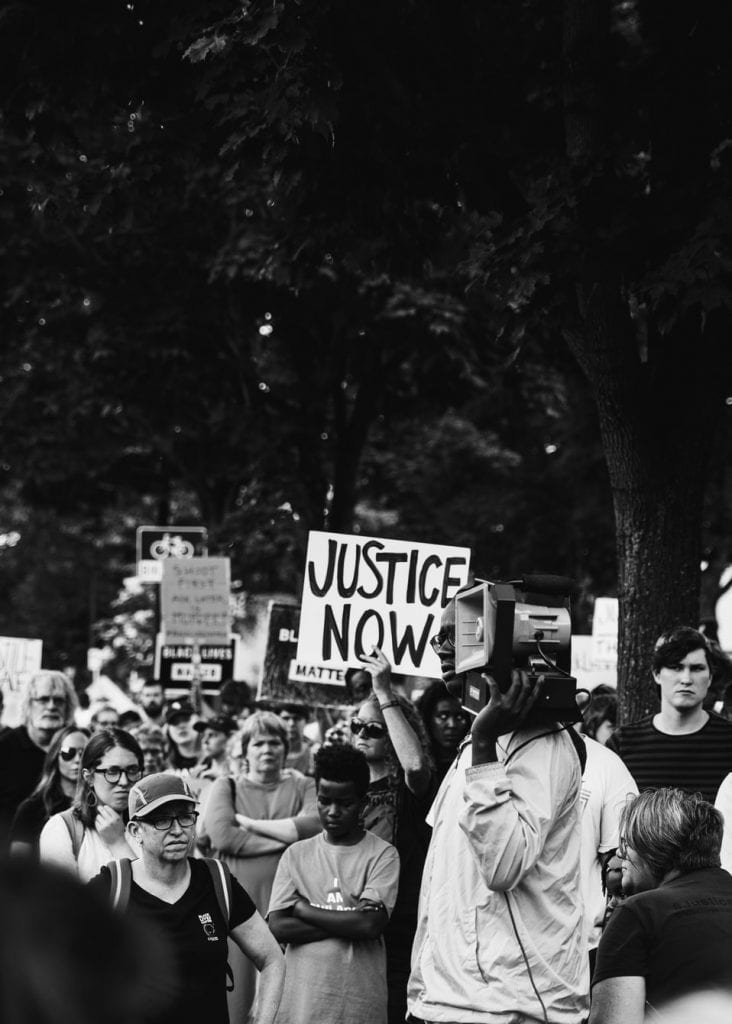“The First Amendment protects your right to assemble and express your views through protest. However, police and other government officials are allowed to place certain narrow restrictions on the exercise of speech rights,” the American Civil Liberties Union states. With that in mind, and to protect yourself and those around you, the 100-year old non-profit – which is dedicated to “defending and preserving the individual rights and liberties guaranteed to every person in this country by the Constitution and laws of the United States” – encourages individuals to make sure that they are acquainted with the law before engaging in public protest.
“Your rights are strongest in what are known as ‘traditional public forums,’ such as streets, sidewalks, and parks,” according to the ACLU. “You also likely have the right to speak out on other public property, like plazas in front of government buildings, as long as you are not blocking access to the government building or interfering with other purposes the property was designed for.” While private property owners can set and enforce rules regarding speech on their property, “the government may not restrict your speech if it is taking place on your own property or with the consent of the property owner.”
In addition to the right to protest, you also have the right “to photograph anything in plain view, including federal buildings and the police, when you are lawfully present in any public space,” the ACLU notes. Importantly, this means that “police officers may not confiscate or demand to view your photographs or video without a warrant, nor may they delete data under any circumstances.”
A brief Q&A from the ACLU is as follows …
Can my free speech be restricted because of what I say—even if it is controversial?
No. The First Amendment prohibits restrictions based on the content of speech. However, this does not mean that the Constitution completely protects all types of free speech activity in every circumstance. Police and government officials are allowed to place certain nondiscriminatory and narrowly drawn “time, place and manner” restrictions on the exercise of First Amendment rights. Any such restrictions must apply to all speech regardless of its point of view.
Where can I engage in free speech activity?
Generally, all types of expression are constitutionally protected in traditional “public forums” such as streets, sidewalks and parks. In addition, your speech activity may be permitted to take place at other public locations that the government has opened up to similar speech activities, such as the plazas in front of government buildings.
What about free speech activity on private property?
The general rule is that the owners of private property may set rules limiting your free speech. If you disobey the property owner’s rules, they can order you off their property (and have you arrested for trespassing if you do not comply).
Do I need a permit before I engage in free speech activity?
Not usually. However, certain types of events require permits. Generally, these events are: (1) a march or parade that does not stay on the sidewalk, and other events that require blocking traffic or street closure; (2) a large rally requiring the use of sound amplifying devices; or (3) a rally at certain designated parks or plazas.
Do I have the right to photograph or videotape during protests?
Yes. When you are lawfully present in any public space, you have the right to photograph anything in plain view, including federal buildings and the police. On private property, theowner may set rules about photography or video. Police officers may not confiscate or demand to view your photographs or video without a warrant, nor may they delete data under any circumstances. However, they may order citizens to cease activities that are truly interfering with legitimate law enforcement operations.
What should I do if I get stopped by the police?
Stay calm. Don’t argue, resist, or obstruct the police, even if you believe they are violating your rights. In some states, you must give your name if asked to identify yourself, but you do not have to provide an ID or other paperwork. Make sure to keep your hands visible. Point out that you are not disrupting anyone else’s activity and that the First Amendment protects your actions. Ask if you are free to leave. If the officer says yes, calmly walk away.
If you are under arrest, you have a right to ask why. Otherwise, say you wish to remain silent and ask for a lawyer immediately.
*This article was initially published on May 28, 2020, but has been republished for maximum visibility in an effort to educate/assist protestors.











